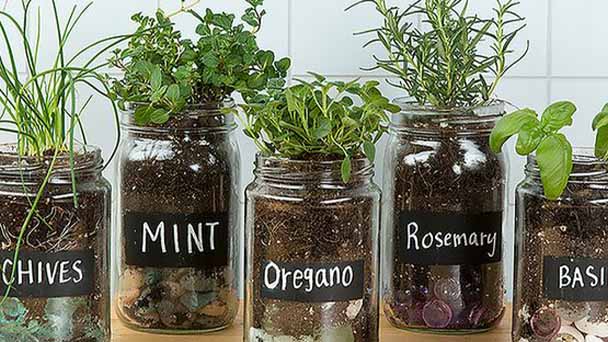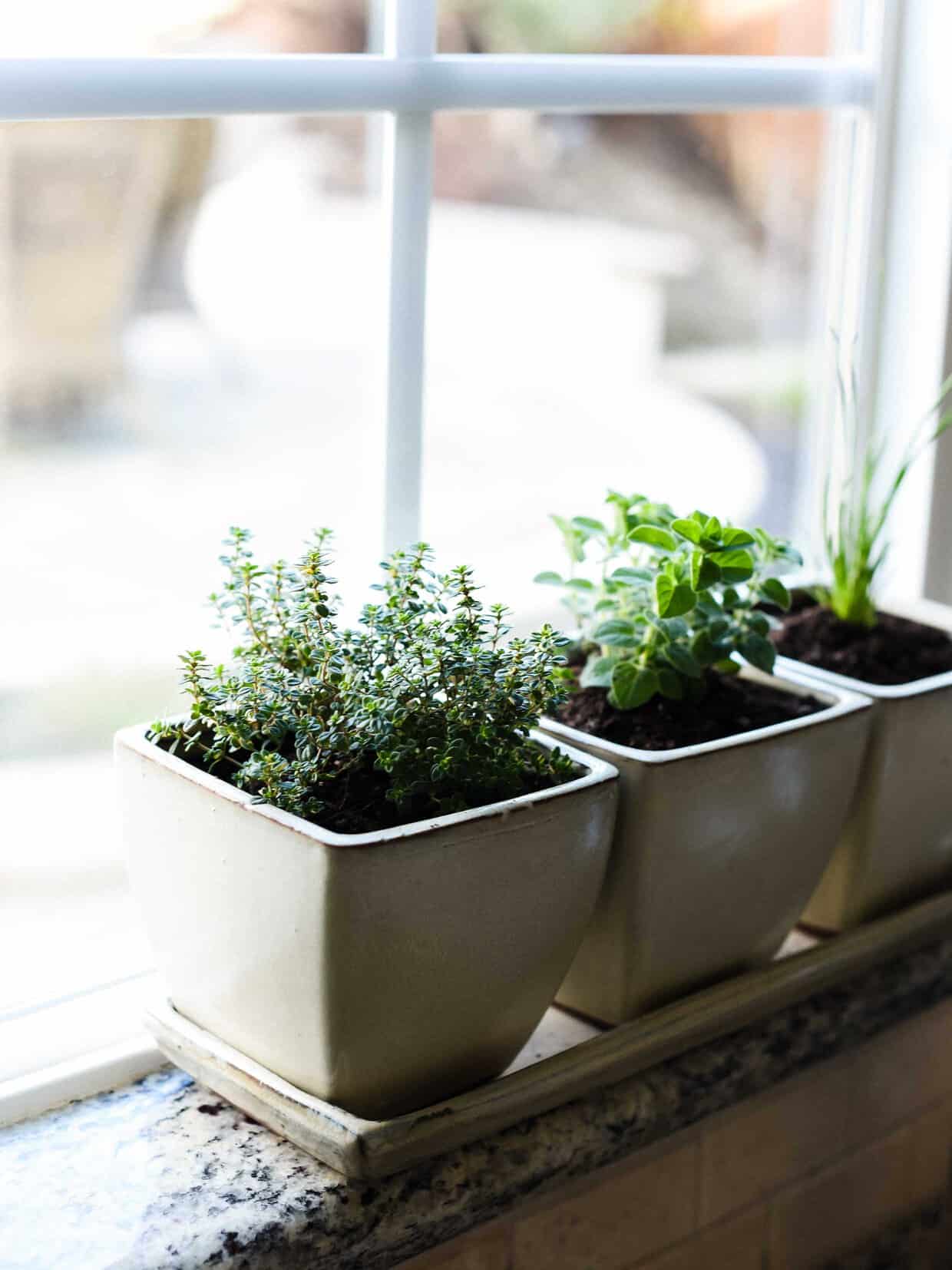Tips for indoor herb garden
Written by Joy
Oct 22 2021

Growing an herbal garden indoors may seem like a problem, but with a little planning, it is possible to grow the most discerning herbs in your kitchen all year round. Most of the herbs are Mediterranean plants, they like warm temperatures and regular bright sunlight. Are you interested? Here is how to grow indoor herb garden.

Light
You'd better not think that a sunny window sill will provide plenty of light for the indoor herb garden, especially in the short days of winter. Even if you think the sun is shining, it only provides a small part of the sunshine that the plants can accept in the summer grass garden. Without six to eight hours of strong light, most herbs (except for lower light herbs like parsley) will grow longer, and when they grow toward the sun, they appear thin and pale. Most indoor gardeners need to provide a form of light to fasten the CFL reflector or place a fluorescent bulb 4 to 6 inches from the top of the plant. The latest and most energy-efficient form of plant lighting is the new form of LED (light emitting diode) light.Heat
Indoor herb garden thrive in normally warm rooms between 60 degrees Fahrenheit and 70 degrees Fahrenheit. (18-21 degrees Celsius), the night temperature is about 10 degrees lower. However, some people, like basil, prefer warm temperatures throughout the day. What you should keep in mind is that during the winter months, windows may be too cold for herbs. You ought to consider putting your vegetable garden, with fluorescent lights, on countertops or other places away from the cold window glass. If you decide to plant herbs on the windowsill, you'd better not let the leaves touch the glass.Soil
In fact, most plants grow in poor soil, not indoors. Indoor herb gardens require well-drained soil, especially in winter, where the transpiration rate is slow, and moisture and air movement are limited. What is the solution? You should simply add coarse sand or perlite for a good quality, compost-based potting mix to ensure sufficient air circulation around the roots.
Watering
When it comes to watering herbal gardens indoors, less is more. Poor drainage and excessive moisture can cause root rot, a plant disease that is almost always fatal. You should plant the herb in a container with good drainage holes, and then, when the top one inch of potting mixture feels dry to the touch, it’s time to pour the water deep.Fertilizer
Indoor herb garden need fertilizer, but not a lot. Generally speaking, it is a lot to feed fish emulsion or other liquid organic fertilizers with diluted mixed feed every week.Planting tent
If you really want to grow an indoor herb garden, a reflective tent is a smart investment. For example, the garden provider provides secret chatten promoters. The size is only 3'×2'×3', opaque, and the waterproof tent is completely washable and equipped with bar support fans, indoor planting accessories and lamps. The tent provides a perfect growing environment for indoor herb gardens, vegetables and flowers, or for the start of seeds, you have to control the light humidity, air circulation and temperature. The additional benefit of using a growing tent is that it can prevent pets from entering, plant pests, and temperature changes, creating an optimal growth environment for your favorite indoor plants.Check our article on 35 Most Common House Plants with Pictures & Care Guide
Latest Updated
- Benefits of Bugleweed - 7 Science-backed Health Benefits
- Bugleweed Dangers & Side Effects - Is It Poisonous?
- How to Plant Evergreen Trees - What You Should Know
- When to Plant Evergreens - Grow Guide for Evergreen Trees
- 12 Wonderful Evergreen Shrubs for Your Garden
- 12 Popular Evergreen Plants with Pictures for Beginners
- When And How To Prune A Lilac Bush Like a Pro
- How to Grow & Care for Lilac Vine (Hardenbergia Violacea)
- Japanese Lilac Tree (Syringa Reticulata) Care & Propagation Guide
- Shumard Oak Pros and Cons - What to Know
Popular Articles
- Winter maintenance of Antirrhinum Majus
- How to Grow Terminalia Mantaly Tree
- How to Grow and Care for Crossostephium Chinense
- How to grow Antirrhinum Majus in spring
- Peristeria Elata (Dove Orchid) Profile: Info & Care Guide
- Underwatered Snake Plant (Sansevieria Trifasciata) - Signs And How To Fix
- How to Care for Brazilian Jasmine Plant (Mandevilla Sanderi)
- How to Grow & Care for Graptopetalum Purple Delight in Summer
- Rosa Chinensis (China Rose): Plant Growing & Care Tips
- How to Care for Baby Sun Rose (Aptenia Cordifolia)